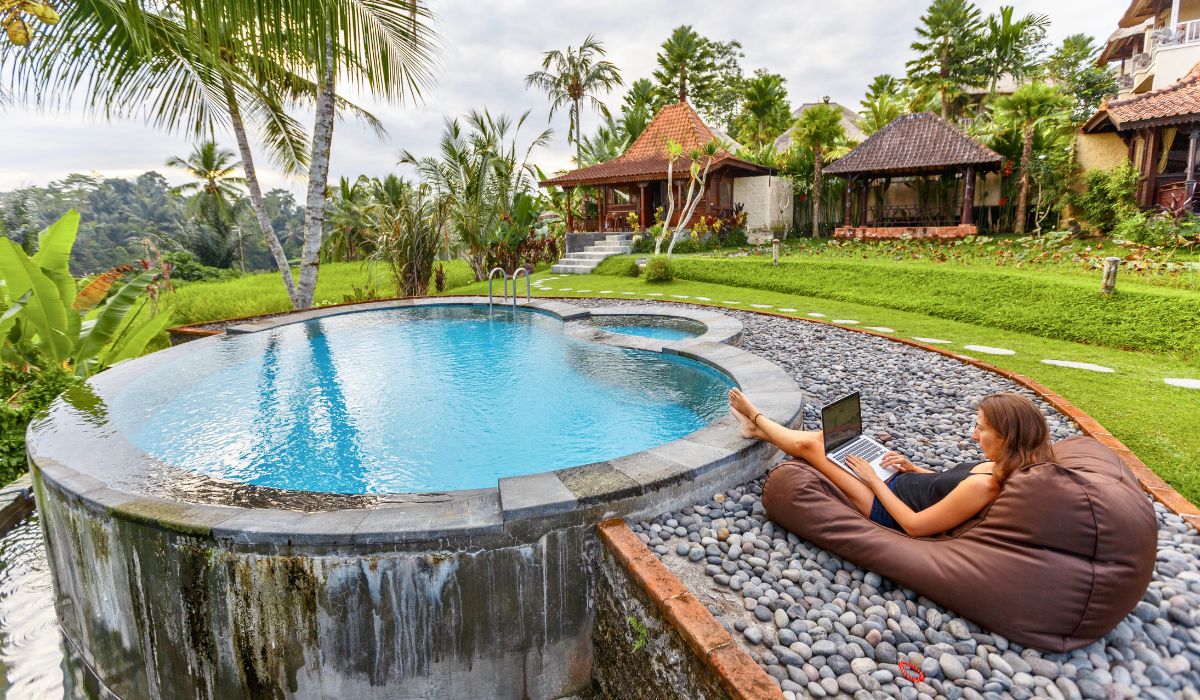Travel
Digital nomads in Bali benefit from extensive communications infrastructure

Indonesia has inaugurated a new massive power outage-resistant cell tower to strengthen and expand mobile network connectivity in Ubud, a region in Bali’s highlands.
The tower was strategically placed on top of the famous Sacred Monkey Forest, so that monkeys were not bothered by the presence of their new, 55-meter-high metal neighbor.
From this point of view, it will have a greater impact on the residential and business areas of Ubud, where hundreds of digital nomads have established their residence.
“Besides connecting communities around the tower, it also aims to improve service and network quality for foreign and domestic tourists who want to stay connected to their families from afar,” says Yose Navirianto, chief technology officer of Indosat Ooredoo Hutchison, the mobile company.
According to Yose, the tower will improve the communication capabilities of more than 3,000 users living in three villages within a 3 km radius.
Some of the advanced features include an advanced generator that prevents service interruptions during power outages.
In his commitment “to expand its reach and strengthen its network quality in remote rural areas across the country to support people’s digital activities,” Indosat Ooredoo Hutchison has also done this through Tri built 1,275 Base Transceiver Stations (BTS) in Bali, reaching 422 sub-districts in the region.
A BTS is a technology that enables wireless communication between a network and mobile phone or similar devices, enabling connectivity and coverage in rural or remote areas where connectivity has traditionally been an issue.
As a result, Tri’s network now reaches 97% of the total population in Bali, including digital nomads and tourists, and 82% of the total population on Nusa Tenggara.
“With the large number of tourists arriving in Bali, Balinese have the opportunity to develop businesses and turn tourism into a potential source of livelihood. Tri wants to provide real opportunities for locals by introducing a new, fast and efficient network that can seamlessly connect tourists and residents to the digital world.” said Julandi George Fransiskus on Friday during the Tri Bali Exploration Media Update event.
In terms of internet connectivity, Bali has the widest coverage in all of Indonesia, with 97% of the population having access to this service.
But while Ubud, Canggu and Uluwatu have high-speed internet, other areas such as Nusa Penida are still not suitable for digital nomads to establish their operations.
The Indonesian government has strengthened partnerships with national and intentional technology companies to increase internet coverage and speed, especially in tourist-heavy areas.
In May, Indonesian President Joko Widodo and Elon Musk signed an agreement to provide satellite internet to rural villages via Starlink.
This move has solved the connectivity issues of key infrastructure in remote areas.













